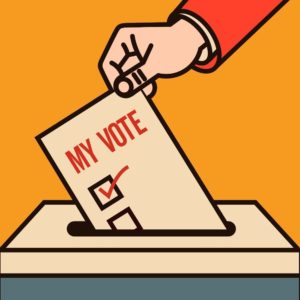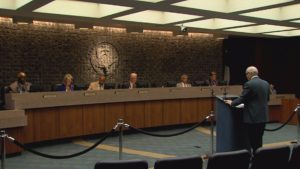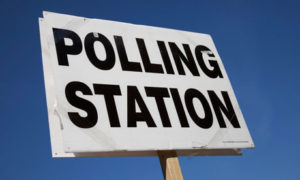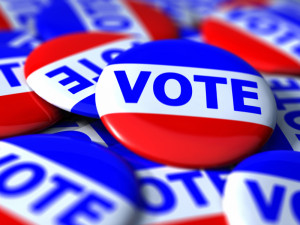What do you know about that? I have known for a long time that Amarillo, Texas, where I used to live wasn’t the only city that produced pitiful municipal voter turnouts.
I have bitched about it for a couple of decades, trying — using my forum as editorial page editor of the local newspaper — to reverse that trend. It fell on blind eyes.
Hey, it could get worse. Amarillo could be as non-involved in this most important civic act as Dallas, just down the highway from where my wife and I now reside.
An analysis in the Dallas Morning News tells me that Dallas delivers the worst municipal voter turnout among the nation’s largest cities. How do Dallas residents do? Six percent of them vote on average for election of the mayor and city council members. Six percent!
I’ll take some pride in revealing that my hometown, Portland, Ore., votes on average at a 59 percent clip in municipal elections.
Dang, man! Why can’t we get more of us to the polls at these local elections, the elections that determine who runs local government, the level of government that has the most direct impact on our lives?
It’s not as though Texas doesn’t do what it can to make it easy for us to vote. We can vote early. The state opens up many venues for Texans to cast their ballots early. Still, I have laughed virtually out loud over many years when I hear local election officials brag about the large number of early ballots being cast … as if that means a greater voter turnout. It usually means nothing of the sort. It only means that more people are voting early, period.
As Michael Lindenberger writes in the Dallas Morning News:
Some studies have even suggested that voting makes citizens healthier, and not just because they can influence health policy. Voting itself, as proof of civic engagement, boosts one’s health, according to researchers at the University of Wisconsin.
More than that, even, a city that relies on only a tiny fraction of its residents to vote leaves our leaders operating on such pencil-thin support it’s a wonder they are able to be effective at all.
Take Mayor Mike Rawlings. He was elected for his second term in 2015 on a huge margin, but with just a bit over 30,000 votes. That’s in America’s ninth-largest city, anchor to the fourth-largest urban area in the nation.
That’s ridiculous. A second term for 30,000 votes and change? What happened to hundreds of thousands of eligible voters?
This guy is speaking my language. It’s ridiculous, indeed!
I have tried to point out over many years that sitting out these important local elections leaves important public policy decisions up to the guy next door, or the dude down the street, someone who might — or might not — share your view of how your community should be governed.
Time to change this dismal voter participation
I applaud the Morning News for bringing this issue to the fore.
Will it matter? Will it bring more voters to the polls next spring when we elect our municipal officials in Texas? Probably not, but man, it needs to be said over and over again.



